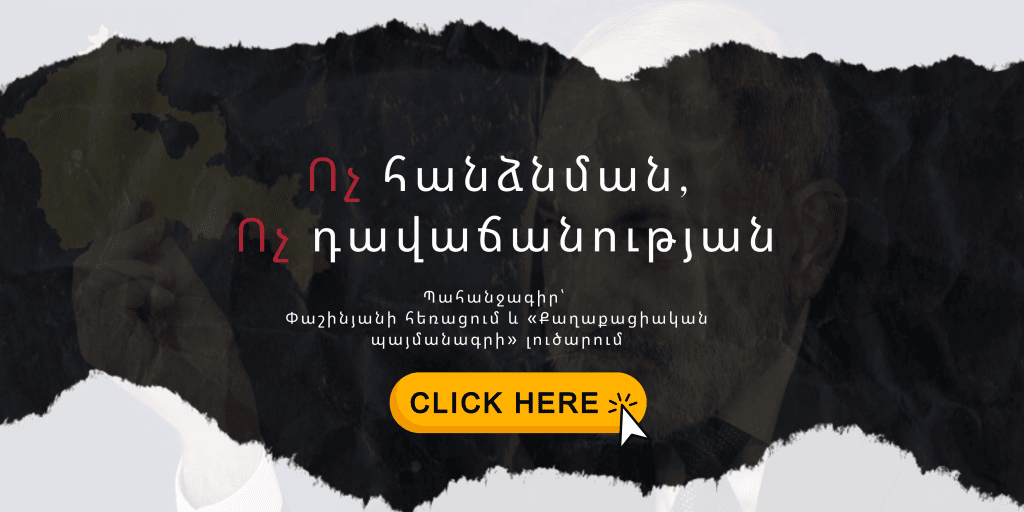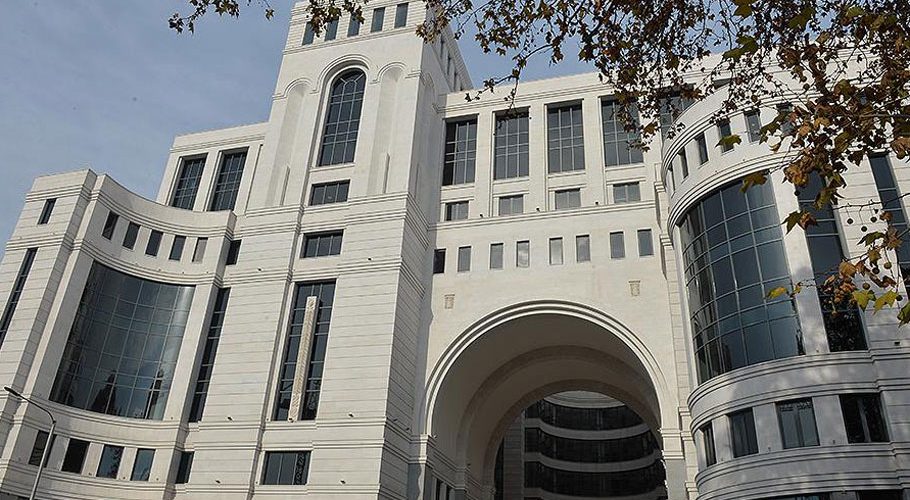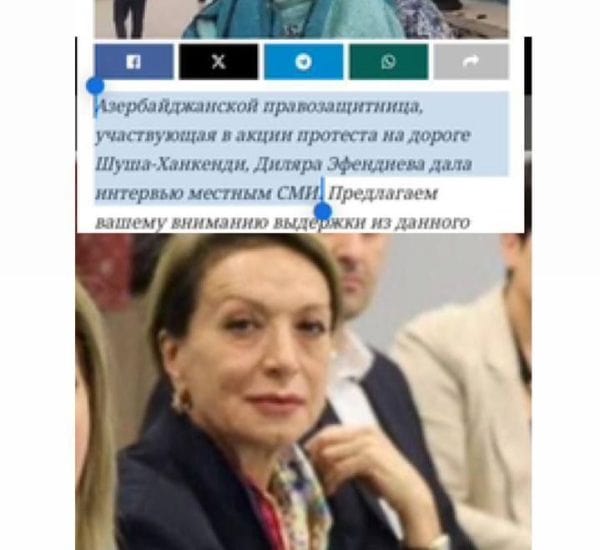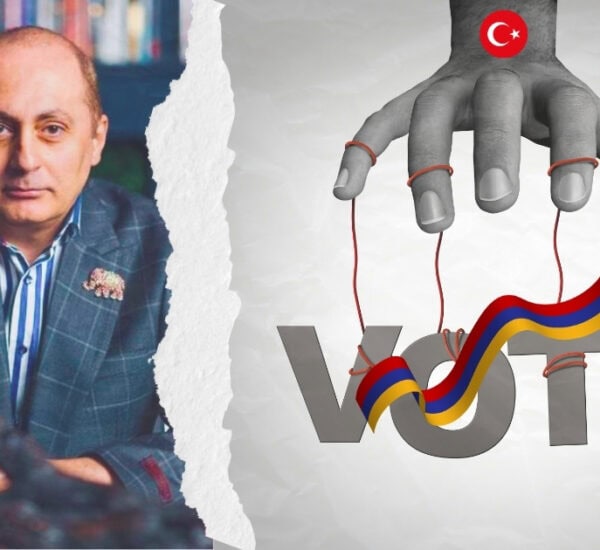The Ministry of Foreign Affairs of the Republic of Armenia has published the text of the preliminary peace agreement between Armenia and Azerbaijan.
Peace and Establishment of Interstate Relations between the Republic of Armenia and the Republic of Azerbaijan
The Republic of Armenia and the Republic of Azerbaijan (hereinafter — the “Parties”),
Recognizing the urgent necessity of establishing a just, comprehensive, and lasting peace in the region, Seeking to promote the achievement of that goal through the establishment of interstate relations, Guided by the Charter of the United Nations, The “Declaration on Principles of International Law concerning Friendly Relations and Cooperation among States in accordance with the Charter of the United Nations” (1970), The Final Act of the Conference on Security and Cooperation in Europe (Helsinki, 1975), and the Alma‑Ata Declaration of December 21, 1991,
and aiming to develop their relations based on the norms and principles enshrined in those documents, Expressing their mutual will to establish good‑neighborly relations between them,
Have agreed to establish peace and interstate relations on the following basis:
Article I
Affirming that the borders between the former Soviet Socialist Republics of the USSR have become the international borders of the respective independent states and have been recognized as such by the international community, the Parties shall recognize and respect each other’s sovereignty, territorial integrity, the inviolability of international borders, and political independence.
Article II
In full accordance with Article I, the Parties affirm that they have no territorial claims against each other and will not raise such claims in the future.
The Parties shall not undertake any actions—including planning, preparation, encouragement, or support of such actions—that aim to wholly or partially divide or undermine the territorial integrity or political unity of the other Party.
Article III
In their mutual relations, the Parties shall refrain from the use or threat of use of force against each other’s territorial integrity or political independence, or from any other manner inconsistent with the Charter of the United Nations. They shall not permit any third party to use their respective territories for the use of force against the other Party that would be inconsistent with the Charter of the United Nations.

Article IV
The Parties shall refrain from interfering in each other’s internal affairs.
Article V
Within _ days after the exchange of notifications confirming the completion of domestic procedures for the ratification of this Agreement by both Parties, the Parties shall establish diplomatic relations with each other in accordance with the provisions of the 1961 and 1963 Vienna Conventions on Diplomatic and Consular Relations.
Article VI
Fully adhering to their obligations under Article I of this Agreement, the Parties shall conduct negotiations in good faith between their respective border commissions, in accordance with the regulations agreed upon by those Commissions, with the aim of concluding an agreement on the delimitation and demarcation of the state border between the Parties.
Article VII
The Parties shall not deploy any third‑party forces along their common border. Until the delimitation and subsequent demarcation of their mutual border are completed, the Parties shall implement mutually agreed measures to strengthen security and confidence, including in the military sphere, in order to ensure safety and stability in border areas.
Article VIII
The Parties condemn and shall combat intolerance, racial hatred and discrimination, separatism, violent extremism, and terrorism in all their forms—each within its jurisdiction—and shall ensure the fulfillment of their applicable international obligations.
Article IX
The Parties undertake to address cases of missing persons and enforced disappearances resulting from the armed conflict involving both Parties, including by exchanging all available information about such persons—either directly or, where necessary, in cooperation with relevant international organizations.
The Parties hereby acknowledge the importance of clarifying the fate of these persons—through appropriate searches for and return of remains, and by ensuring proper investigations to achieve justice for them—as a means of reconciliation and confidence‑building. The relevant arrangements shall be negotiated and detailed in a separate agreement.
Article X
The Parties may conclude agreements in areas of mutual interest, in various spheres—including economic, transit, transport, environmental, humanitarian, and cultural—aimed at establishing cooperation.
Article XI
This Agreement does not limit the rights and obligations assumed by the Parties under international law and through treaties concluded by each Party with other member states of the United Nations.
Each Party shall ensure that none of its existing international agreements with any third party undermines the fulfillment of its obligations under this Agreement.
Article XII
In their bilateral relations, the Parties shall be guided by international law and this Agreement. Neither Party may invoke the provisions of its domestic legislation as justification for the non‑performance of this Agreement.
The Parties, in accordance with the 1969 Vienna Convention on the Law of Treaties, shall refrain from acts that would defeat the object and purpose of this Agreement prior to its entry into force.
Article XIII
The Parties shall guarantee the complete implementation of this Agreement and shall establish a bilateral Commission to monitor its execution. The Commission shall operate based on procedures to be agreed upon by the Parties.
Article XIV
Without prejudice to international law and to the rights and obligations assumed by the Parties under other binding agreements governing their mutual relations, the Parties shall seek to resolve any disputes regarding the interpretation or application of this Agreement through direct consultations, including within the framework of the Commission referred to in Article XIII.
If such consultations do not produce mutually acceptable results within six months, the Parties shall seek other peaceful means of dispute settlement.
Article XV
Without prejudice to Article XIV, within one month after the entry into force of this Agreement, the Parties shall withdraw, cancel, or otherwise terminate any and all interstate claims, petitions, complaints, objections, proceedings, and disputes presented in any legal forum relating to issues that existed prior to the signing of this Agreement, and shall not initiate such claims, petitions, complaints, objections, or proceedings thereafter. The Parties shall also refrain from participating in any such claims by third parties against the other Party.
The Parties shall not carry out, encourage, or engage in any hostile actions against each other that contradict this Agreement in diplomatic, informational, or other domains, and shall hold regular consultations for that purpose.
Article XVI
This Agreement shall enter into force following the exchange of notifications certifying the completion of internal procedures in accordance with the national legislation of the Parties. The Agreement shall be registered in accordance with Article 102 of the Charter of the United Nations.
Article XVII
This Agreement is executed in Armenian, Azerbaijani, and English, all three texts being equally authentic. In case of divergence in interpretation between the equally authentic texts, the English text shall prevail.
Note
On August 8, in Washington, Prime Minister of Armenia Nikol Pashinyan and President of Azerbaijan Ilham Aliyev signed a joint declaration consisting of seven points, affirming the Parties’ intent for peace without presenting the details. The document was also signed by U.S. President Donald Trump.
The Foreign Ministers of Armenia and Azerbaijan, Ararat Mirzoyan and Jeyhun Bayramov, respectively, in the presence of the leaders of Armenia, Azerbaijan, and the United States, preliminarily signed the Agreement on Peace and the Establishment of Interstate Relations between the Republic of Armenia and the Republic of Azerbaijan.



